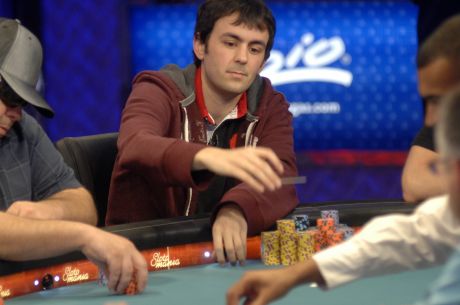Poker Shrink Vol. 69: Recency and Primacy Effects

Both the Recency Effect and the Primacy Effect have fairly simple explanations but some not-so-simple applications. First as an explanation, think of being asked to remember a list of items. You are more likely to remember the first items on the list then the middle items. This is the Primacy Effect. However, as the list gets longer and you are more overwhelmed with trying to hold them all in your memory, you may get confused and then only remember the last item or items presented. This is the Recency Effect.
The Recency Effect has a broader application in that we are prone to base our actions on our most recent observations — the last thing we saw or heard. For instance, you see some fool almost get hit by a bus because he didn’t look both ways before stepping off the curb. I guarantee at the next crosswalk you will look both ways.
People who bet on sports are often victims of the Recency Effect. A team that has been terrible all season suddenly has a great week and wins a game against a really good opponent. The gambler sees this, particularly if he lost money on the game, and thinks: Well these guys have discovered something, they looked good in that game so I should bet on them next week. Of course, the terrible team then returns to their losing ways and the gambler is confused. If this team was terrible for eight weeks, why would one good or lucky game change his assessment? Why? The Recency Effect.
Switching over to poker. The guy in Seat 4 who you thought was a calling station just made a great three-barrel bluff against the big stack and took down a huge pot. Seat 4 then enters the very next pot for a big opening bet. What do you think? Be careful. If you have three or four hours of reads that scream “rock”, why would one hand change your read? Again, it’s the Recency Effect. You just saw the bluff and now you think this guy is a really good player because of one hand? Sure, he might be changing up or he might have just woken up. Yes, it is worth paying close attention to his play but one recent hand does not wipe out hours of good reads.
The Recency Effect is fairly easy to overcome; we just learn that one hand is one hand, and we factor each hand into our read of a player. If a recent hand has any additional information we add that to the mix, and we might note that the recent play might signal a change — but one hand is one hand. Now the Primacy Effect is more difficult to overcome.
Once we lock in on a read of a player, we like to think that we have him figured out cold. There are new players coming to the table and we need to concentrate on getting some early reads on them. It is very common to want a previous, earlier read to stick. We have a tendency to go with what we saw and read first, and to not want to change that read. It’s human nature to hold on to older beliefs; we call this the Primacy Effect.
It’s true at the poker table or in any of our opinions, whether they be about a person or politics, religion or art. We have an opinion and we tend not to change that opinion without a motivating factor. In poker the strong motivating factor is that players do change up their play and if you don’t alter your reads on them, it will cost you chips.
You can’t avoid the effects of Recency or Primacy. You can stay open to changing your reads on a player based on solid new information — but not just any single action that contradicts what you already know.








